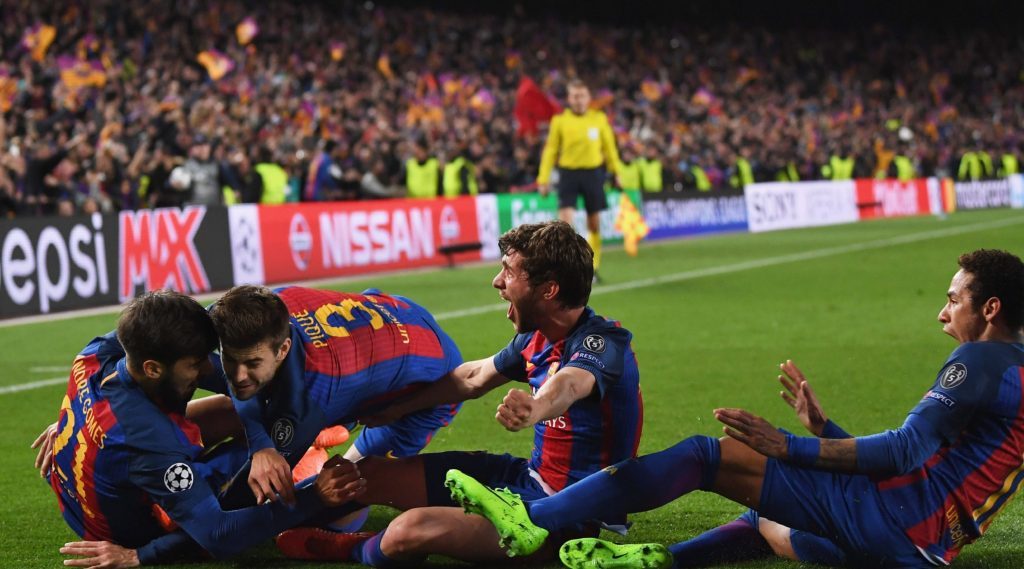Truly great stars whether they be in sport, music, or acting, are capable of scintillating performances which transcend the boundaries of the achievements of mere mortals.
Populating that thinly inhabited and refined stratosphere is surely Barcelona’s epic Champions League comeback in midweek, when they overturned a 4-0 first leg defeat to triumph 6-1 in the dying minutes of the match v Paris Saint Germain, proving I think, that the Catalan side are the finest ever to grace planet football.
At the Nou Camp, a magnificent and raucous theatre of dreams, they’ve elevated themselves and the sport in which they excel, to a unique level within the game. They have combined artistry and attitude, flamboyance and finishing, and precision and pace, to levels which even the best in the world can only gawp at, in the downcast realisation that they will never match these peerless performers.
Amid their superb display of football, and despite the aggravating diving antics of Neymar, it was impossible not to be mesmerised by Messi and the brilliant Brazilian artiste. Both have been gifted with such sublime talents that they make the impossible seem routine, and the ridiculous appear normal.
Touch and telepathy seem ingrained within the Catalan side. They play as a complete unit, and yet they also encompass and embrace outrageous individuality to paint a football masterpiece.
Barcelona are one of the richest clubs in world football, yet PSG themselves are the plaything of multi billionaire Arab ownership, so there is more to the success of Barca than just hard cash.
The tiki-taka philosophy of the club, combining a short sharp accurate passing game with a ferocious work ethic, which closes down opposing players in seconds, is a joy to watch, yet it seems impossible for other clubs to either emulate or cope with it.
Barcelona’s defeat in Paris was heralded as the end of their style of play and of their lofty position in European football: in fact it appears to have been a mere blip, a bad day at the office, which even the greatest of teams suffer on occasion.
The really great football sides bounce back from adversity with courage and style, that’s what Barcelona did, and it’s the reason that football fans the world over, love to watch and admire them.
* If Scotland can beat England at Twickenham today for the first time since 1983 might rugby think seriously about challenging football as the national sport?
Admittedly the chances of the latter happening are much slimmer than a possible win, but both should concentrate the minds of the SRU.
In Scotland we currently have a cracking oval ball side full of men who play with a passion and commitment that our national football team finds difficult to replicate.
For too long rugby has been the preserve of the private school brigade. Isn’t it time to mount a serious and sustained challenge to football’s dominance in the state schools? Then the future might be a different shape: if rugby officials work hard enough at selling the sport on the back of our current success, they might just kick football into touch.
